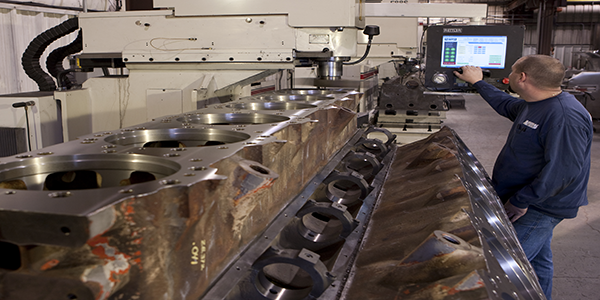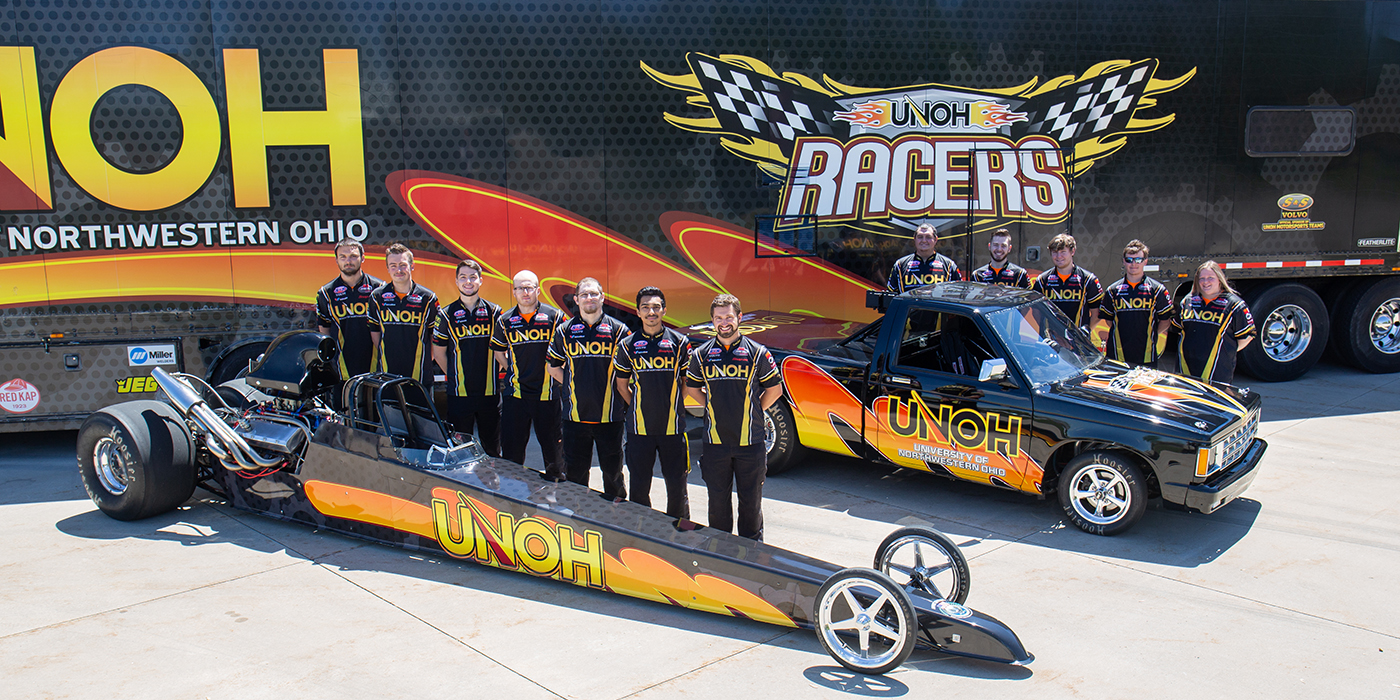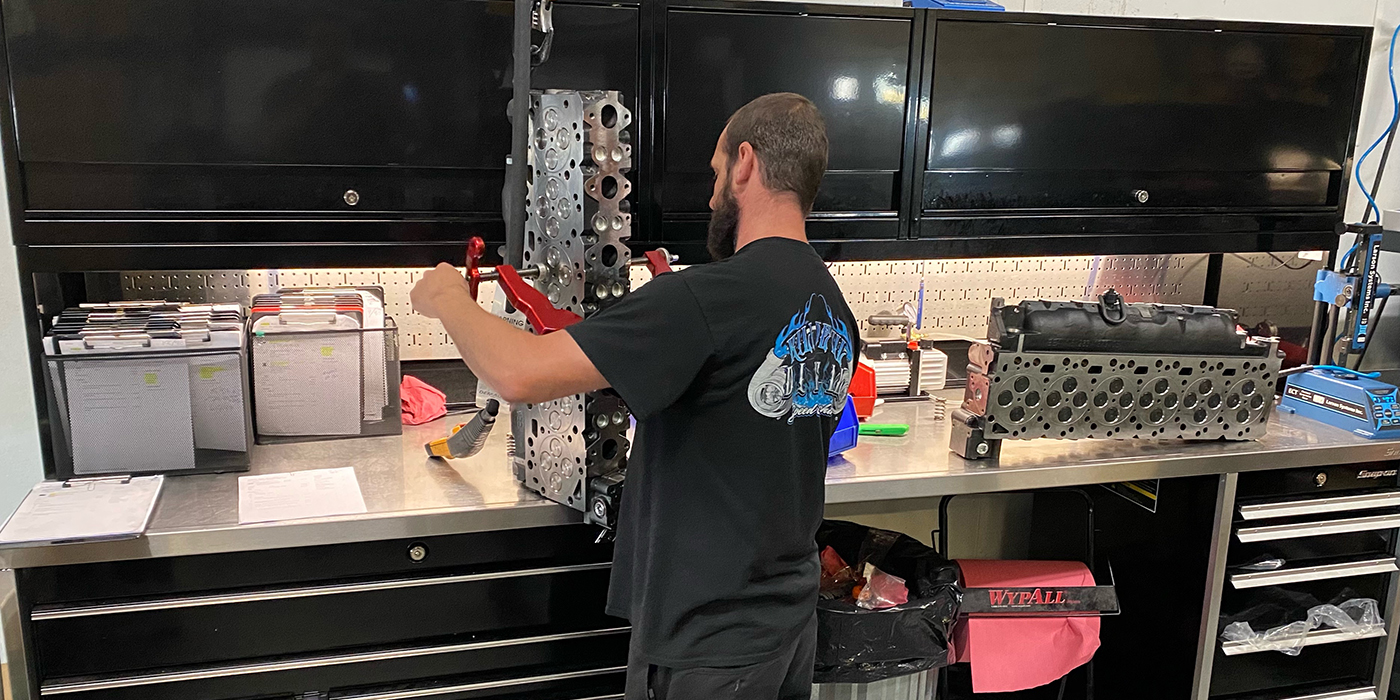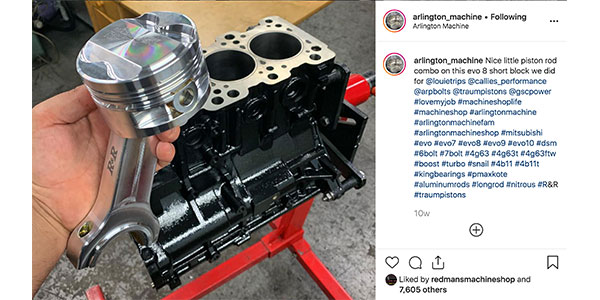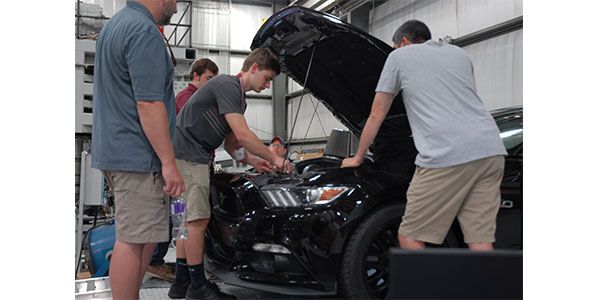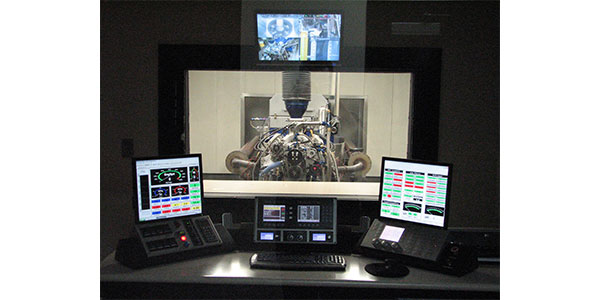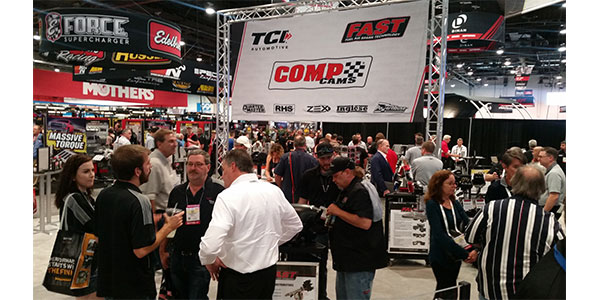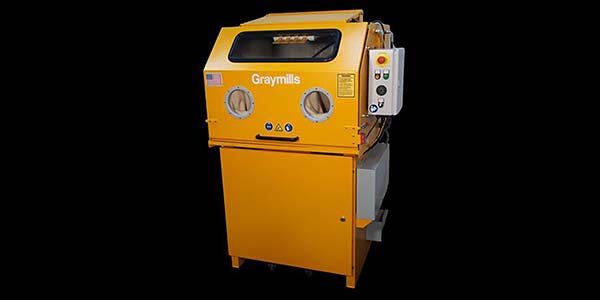Options to ensure engine builders get the most from your equipment purchases
The time has arrived. You’ve purchased that new piece of equipment and changed around your shop to accommodate it into the synchronous harmony of your operation. Now you look for it to make money but nobody knows how to use it. What do you do?
First, wake up from the nightmare and relax. In the case of most equipment purchases, sales reps will either train employees themselves, or arrange to have an expert take care of it for them. Either way, they want you to get the most out of the equipment so you’ll tell all your engine building friends and it works out for them in the end with another potential sale.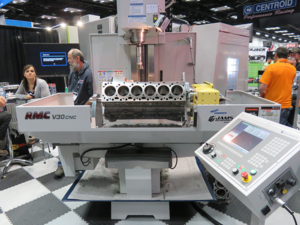
Experienced sales reps at equipment manufacturers say training is actually one of the most important things they provide – and it has to start internally and include everyone.
“We pride ourselves on our training and that includes our own employees,” says one industry veteran. “All of our trainers and salesmen are put through an extensive 16-week training process at our headquarters when they’re first hired and follow up training is provided throughout their career. This is very important to us to make sure the customer is trained correctly on the machines they purchase. Once a customer is trained on a new machine, backup support from the factory technical services center is also available over the phone at no cost. Once they purchase a new machine we become partners in business for success. Poorly trained operators will produce a bad product for their customer and cause the business to fail.”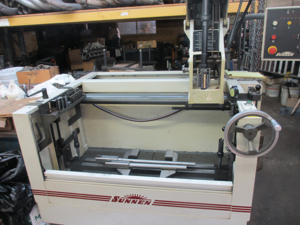
Furthermore, as business changes, your sales reps and company contacts have a vested interest in advising you on the best tooling and techniques to use to get your desired result. Not every block is gray cast iron anymore, and the professionals can get you on the path to success.
Experience building engine machining equipment means that many of the most recognizable names in the industry have seen a lot of trends come and go. But it’s no longer just the size that matters – as the requirement for greater accuracy continues, more and more equipment is turning to computer numeric control (CNC). This, as you can imagine, means training has the potential to get complicated quickly.
Thankfully, when you buy a machine from a supplier, it usually comes with training included. The more complicated and capable the equipment, the more training you receive. Your shop can go from having never touched the equipment to machining on customer work in, many cases, just a matter of days.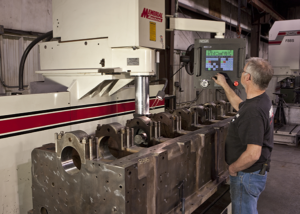
Some shops are concerned that they might need ongoing training or solutions to questions after the training engineers have left. They’re right. Supplier-generated training videos are available online that can quickly and easily serve as reference points to build skills and provide easy-to-follow instructions so you can see what you should be seeing without crashing a tool bit.
Of course, not all new equipment is brand new; it may just be new to you. Regardless, suppliers assure me that a good equipment dealer will help train you and your team whether or not the equipment is new. Regardless of the age of the machine, knowing how to run it and take care of it is paramount. The training is very important to get the most out of your machine and your employees.
As your business grows beyond a few new machines and gets much larger, you may need specialty training by someone who’s been around the block more than a few times.
Lyle Haley has been in the business since 1961 and the quick outline is that he’s owned his own shop for many years, pioneered aluminum head repair in the ’70s, been an independent equipment sales rep (always doing his own training), worked for machine tool OEMs and trained people on every kind or machine tool used in engine building, helped develop numerous rebuilding programs for the automotive OEMs, including GM, Chrysler and Isuzu, served on multiple industry boards, and served as a consultant for the U.S. Armed Forces to create a rebuilding program and created the training for them. And THAT is the outline version. So the title “The Shop Doc” isn’t boastful or self-aggrandizing in any way, but actually a humble footnote to multiple lifetimes worth of accomplishments for one really nice guy.
Haley says setting up a training program isn’t necessarily easy, but it’s necessary. All this complexity means complex training as well. In an era when OEMs are regularly putting out stock engines in the 600-800 hp range, the details get pretty small and we really start to split hairs from start to finish. That’s when you need a program in place that is traceable, trackable, reliable and repeatable. Often this means a division of labor; specialists in each area of expertise. For instance, I’ve met some engine tuners who can make a mouse and laptop sing and find every little bit of power from your engine, but I question whether or not they know which end is the business end of a ratchet.
Whether or not you need that much specialty training, once your business grows enough to have a steady amount of similar work, it may still be a good idea to have specialists. For example, I don’t want my knee doctor working on my heart.
Still, whatever your level of training needs are, I’d start with your sales rep and progress from there. They are going to be the most knowledgeable people you’ll likely find to train you and your current and future employees.
Remember, don’t buy a machine without running it first, don’t buy a machine that does not include set up and training and don’t ever sign off on a purchase until all of the set up has been finished and your complete satisfaction has been achieved.
Training is critical for both you and your machining and equipment suppliers – if you can’t properly use their equipment, it will reflect poorly on them even if the only problem is the loose nut at the controls. ν

